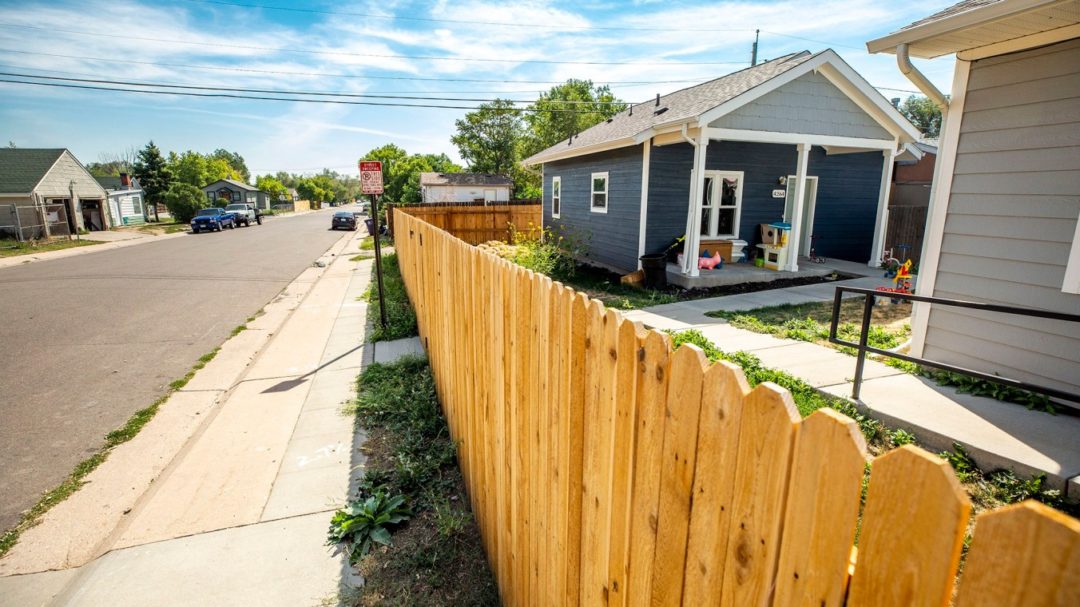DENVERITE – A west Denver community group has been navigating the challenges of building granny flats, add-ons to homes that add density and an additional housing option.
Once construction was completed earlier this year, an inspector from the Department of Transportation and Infrastructure arrived for a final review. He determined that 20 yards or so of sidewalk running along the north side of the property needed repairs. In Denver (and elsewhere in the United States), homeowners are responsible for such repairs. The city often uses a construction project as an opportunity to order that work be done.
Whatever the cost, the idea that homeowners should be responsible for the state of sidewalks is baffling to Jill Locantore, who pushes for a more walkable, bikeable and connected city as executive director of the Denver Streets Partnership.
Putting the burden on homeowners has meant that low-income neighborhoods have the worst sidewalks, Locantore said. She called for a re-ordering of spending priorities so that sidewalk repairs can come from the city budget.
Imagine, Locantore said, if individual homeowners were responsible for repairing the pot holes outside their homes. Cars would be lurching along streets that would look like stretches of sidewalk where deserts of cracked and crumbling pavement occasionally meet an oasis of smooth, wide path that runs just the length of a new or renovated home.
“We end up with this ridiculous patchwork that does no good for somebody who’s trying to walk from point A to point B,” Locantore said. A sidewalk is “considered an amenity. Like, the only thing people want to do with a sidewalk is pace in front of their house.”
Locantore said the city has been “excruciatingly slow” in rolling out the sidewalk repair program.
Good sidewalks, Locantore said, should go hand-in-hand with affordable housing and density, ensuring people can get around without the expense of a car.
“It’s the city policies that have unnecessarily created inequities and the supposed, artificial conflict” between sidewalks and affordability, she said.
Read the full article
